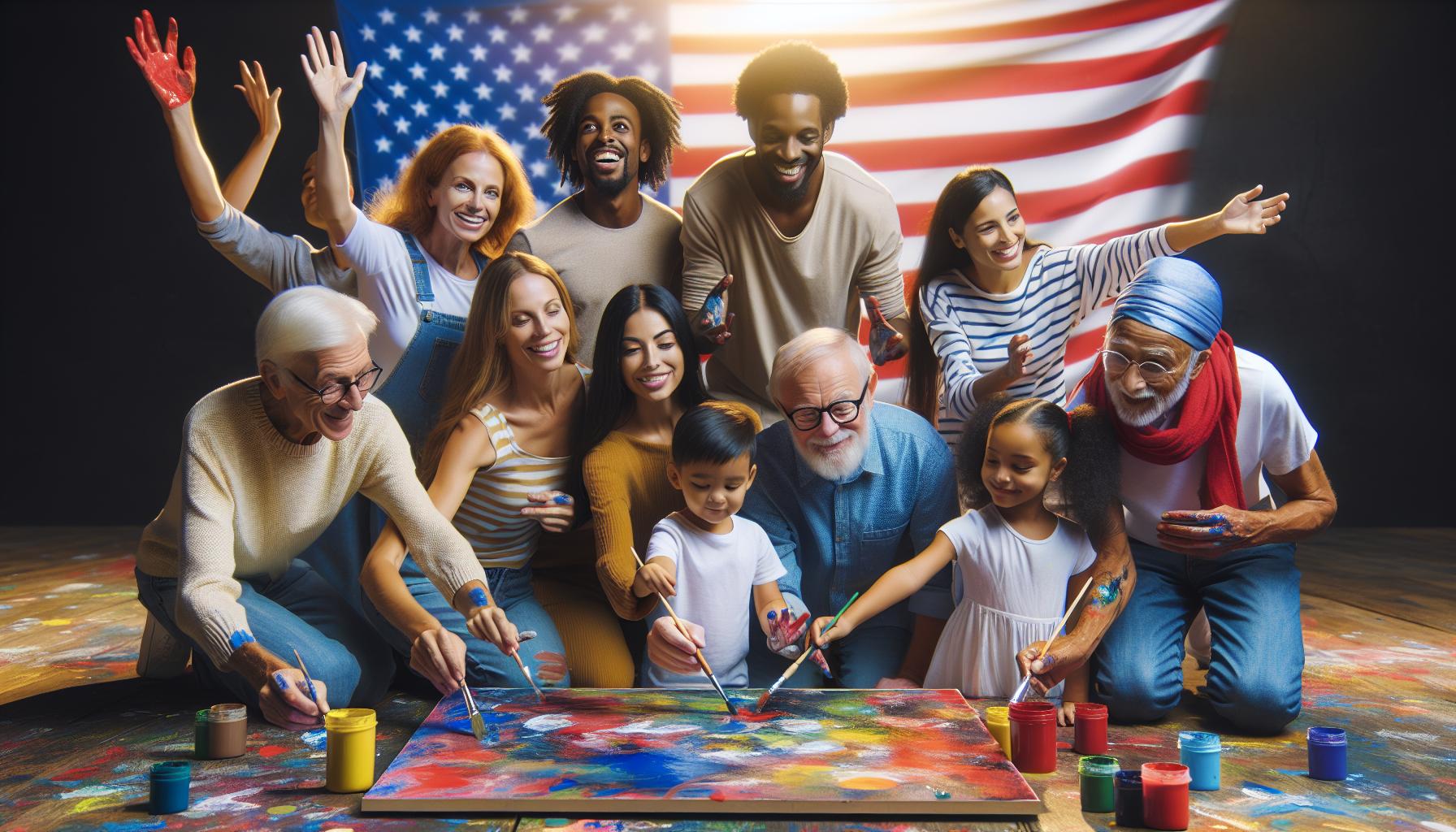How Adopting a Beginner’s Mind Can Transform Your Continuous Learning Journey
Sitting in my favorite chair with a warm cup of tea, I often find myself reflecting on the beauty of learning something new. Adopting a beginner’s mind feels like rediscovering the world through fresh eyes, just like when I first learned to bake my grandmother’s secret recipe. Each time I dive into a new subject, I’m filled with that same thrill of anticipation, ready to uncover delightful surprises waiting to be explored.
There’s something magical about embracing curiosity without the pressure of being an expert. It allows me to enjoy the journey, savoring each moment of discovery like a cherished story to share over tea with friends. Whether it’s a fascinating fact or a new skill, every piece of knowledge becomes a treasure, enriching my life and sparking joy. So, let’s embark on this adventure together and uncover the unexpected joys that come with a beginner’s mind, making learning a delightful experience worth sharing.
Understanding A Beginner’s Mind
Adopting a beginner’s mind means approaching learning with an open heart and an eagerness to discover. It’s all about letting go of preconceived notions and embracing the joy of the new.
Definition and Origin
A beginner’s mind, or “shoshin,” comes from Zen Buddhism. It describes the attitude of a novice eager to learn, free from bias or overthinking. Imagine stepping into a room full of possibilities, ready to soak up every experience. That’s the spirit of it! I often think of it as wearing my favorite pair of sneakers—comfortable and ready for wherever the day leads me.
Benefits of Adopting A Beginner’s Mind

Adopting a beginner’s mind opens up a world of benefits that enrich the learning experience.
Enhancing Creativity
Embracing a beginner’s mindset fires up creativity like rocket fuel. When I approach a task without the weight of perfectionism, I can explore wild ideas without the fear of failing. Think about it: kids throw paint on a canvas without worrying about making a “masterpiece.” This lack of judgment ignites imagination (and some pretty intriguing art pieces). Each attempt becomes an exciting experiment where I discover new angles and solutions to problems. This shift fosters a sense of playfulness essential for innovation, showing that creative breakthroughs often come from a space where “anything goes.”
Fostering Open-Mindedness
A beginner’s mind cultivates open-mindedness like a garden blossoming with new ideas. I find myself more willing to consider different perspectives and challenge my assumptions. This mindset invites me to engage with people and opinions I might typically overlook. Instead of dismissing unfamiliar concepts, I dive in, ready to learn something new. It often leads to unexpected personal growth and richer conversations, making life far more colorful. In today’s fast-paced world, staying open to diverse viewpoints not only enriches my understanding but also builds deeper connections with others. After all, learning together is way more fun, right?
Practical Ways to Cultivate A Beginner’s Mind

Cultivating a beginner’s mind enriches the learning journey. Here are some practical ways to embrace this mindset.
Embracing Curiosity
Curiosity fuels learning. I find asking questions sparks excitement—questions like “What if?” or “Why not?” Even simple things become magical when I look at them through the lens of curiosity. I dive into topics I’ve never explored. Watching a tutorial or reading a book can open up a whole new world. Curious people aren’t afraid to indulge in their interests. I often remind myself that every expert started as a beginner. So, whether it’s learning to cook a new dish or picking up a new hobby, I approach it like a curious child, ready to explore. The goal isn’t to master it but to enjoy the ride. This mindset transforms each experience into an adventure.
Overcoming Fear of Failure
Fear of failure can stifle growth. I once hesitated to try pottery, worried about failing miserably. Then I realized that every potter likely broke a few (or many) pots before getting it right. Shifting my focus from perfection to progress makes all the difference. Instead of worrying about mistakes, I embrace them as stepping stones toward success. I remind myself that failure is part of the journey. It’s awkward, humorous, and often turns into the best stories. I laugh at my earlier attempts: my first attempt at baking left my kitchen looking like a flour bomb exploded! Recognizing that each stumble brings a lesson helps me stay motivated. I treat learning as a series of experiments. This playful approach helps me maintain a beginner’s mindset, making the process enjoyable rather than intimidating.
Real-Life Examples of Continuous Learning

Continuous learning thrives in real-life applications. Seeing how others embrace it sparks motivation and connection.
Case Studies
- Julie’s Culinary Adventure
Julie experienced a culinary transformation. After stumbling through a failed soufflé, she sought out cooking classes. With each lesson, she discovered not just recipes but also her passion for flavors. Today, her kitchen bustles with new dishes and joyful dinner parties.
- Tom’s Tech Triumph
Tom, a marketing pro, decided to dive into coding. Initially daunting, he found online courses that turned scary jargon into manageable tasks. Now, Tom demystifies tech talk and confidently collaborates with developers. His newfound skills opened doors to innovative projects.
- Alex’s Artistic Journey
Alex, a graphic designer, turned to painting as a hobby. With each stroke of the brush, he learned to express emotions differently. What started as a pastime now influences his professional work, allowing for vibrant designs that captivate clients.
- Maria’s Mindset Shift
Maria realized the power of a beginner’s mind after joining a book club. She said, “I didn’t just read; I learned to see stories differently. Each discussion felt like opening a treasure chest of ideas.”
- Sam’s Sports Challenge
Sam embraced a beginner’s mind while picking up tennis. He noted, “I laughed at my first serve, but each game taught me something new. I’m still bad, but now I also enjoy it!”
- Lily’s Language Quest
Lily tackled Spanish with humor. “I made mistakes every class,” she recalled, “but my teacher turned every blunder into a joke. The fun of learning made me fluent faster than I imagined!”
These real-life stories show that adopting a beginner’s mind fuels growth, keeps learning vibrant, and makes each experience worthwhile.
Challenges and Solutions

Facing challenges when adopting a beginner’s mind is common, but overcoming them leads to incredible growth.
Common Obstacles
I often stumble over the fear of looking foolish. That nagging voice says, “What if I mess up?” It can be paralyzing, especially when grappling with new skills. Another hurdle is perfectionism, where I feel that every attempt must come out flawlessly. It’s easy to get stuck in this cycle, creating barriers to learning. Time constraints add to the pressure, making me think it’s impossible to squeeze in that new hobby or skill. Lastly, the comfort of routine can feel safer than trying something new, making it hard to explore unfamiliar territory.
Strategies to Overcome
To tackle these obstacles, I embrace mistakes as part of the journey. Laughing off blunders takes the sting out and turns them into learning moments. Setting small, achievable goals helps me focus and builds confidence, allowing each step to feel like a win. I schedule dedicated “learning time” in my day, turning it into a ritual where I prioritize discovery. Joining a community of fellow learners also amps up the fun and adds a layer of support, making the entire experience feel less daunting. Most importantly, I remind myself that every expert was once a beginner—just like me—getting comfortable with the uncomfortable.
Conclusion
Adopting a beginner’s mind has truly transformed my approach to learning. It’s refreshing to let go of the pressure to be perfect and instead focus on the joy of discovery. Each new experience feels like a treasure waiting to be uncovered.
I’ve learned that embracing curiosity opens up a world of possibilities. Whether it’s baking a new recipe or picking up a new hobby, the thrill of trying something new never gets old. So let’s keep exploring and celebrating our learning journeys together. Remember that every step, no matter how small, is a part of our growth.

